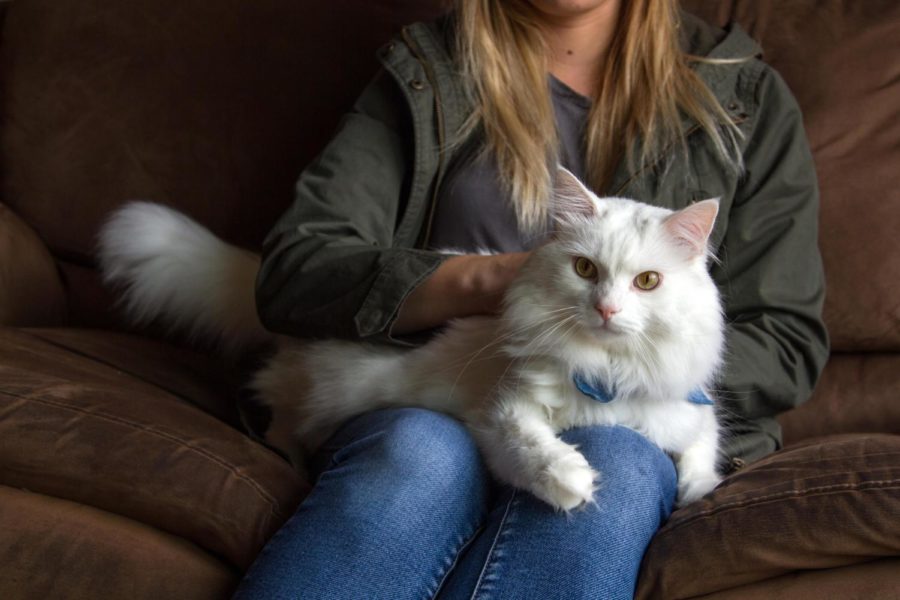Need to Know: Service Animals
Hannah Olson / Iowa State Daily
cat emotional support animal
July 9, 2018
Service animals are permitted at Iowa State and are subject to the conditions and restrictions outlined within their policy detailed below.
Assistance animal accommodation requests made by students and overnight visitors will be reviewed and assessed by Student Accessibility Services (SAS) consistent with the applicable laws and policies.
“ISU reserves the ability to make special modifications, within the confines of the applicable law, to its policies to reasonably accommodate the person requesting the accommodation,” says the SAS policy statement.
Residents who have complied with this policy are permitted to have emotional support animals in their assigned university housing units.
Residents who would like their emotional support animals to reside in university housing must ask and receive approval pursuant prior to the emotional support animal entering university housing. Support animals are limited to the residential areas.
“The service animal must be house trained before living on campus at Iowa State University. Students wanting a service animal, are encouraged to speak with Student Accessibility Services prior to moving on campus,” according to the SAS policy statement.
An assistance animal may be removed from campus if the animal is deemed a threat to other students to the health and safety of other students.
“The university may impose some restrictions on or ban an assistance animal in certain instances. Restrictions or exclusions will be considered on a case-by-case basis in accordance with applicable laws,” according to the SAS policy statement.
When considering whether an assistance animal poses a direct threat to the health or safety of others, the university will make an individualized assessment based on reasonable judgment, current medical knowledge or the best available objective evidence. There are three criteria that the university looks at when conducting the assessment.
The first thing the university looks at is the nature, duration and the threat the animal poses to other students and faculty. The second criteria is the likelihood the potential injury will actually occur.
“An assistance animal may have its access to university property restricted or revoked if the assistance animal is out of control and the owner does not take effective action to gain and maintain control,” according to the SAS policy.
The final criteria is whether reasonable modifications of policies, practices or procedures will lessen the risk of the animal causing harm to other students and faculty.
“An example of this may be an assistance animal that repeatedly gets loose and runs at large, even if it does not physically injure a person or another assistance animal. The owner of the animal is responsible for any damage that is caused by the animal on campus,” according to the SAS policy.
The SAS policy goes on to say that, “If it appears that anyone has abused or neglected an assistance animal, the university may report the animal abuse or neglect to the appropriate authorities, in addition to any other campus remedies.”







